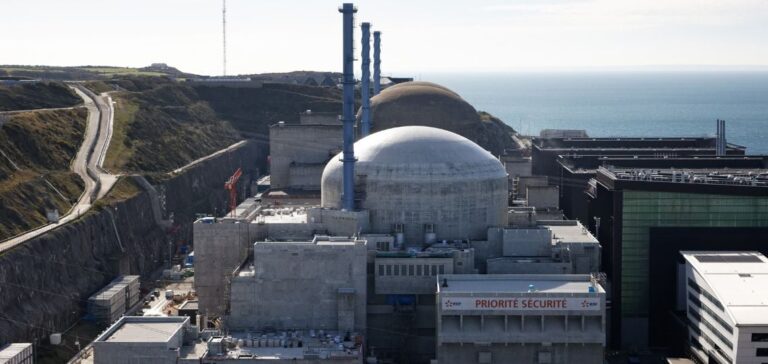EDF is finalizing preparations for the launch of the Flamanville EPR reactor, which will soon inject its first electrons into the French grid.
This strategic project, which began 17 years ago, has faced numerous challenges, including technical anomalies and criticized project monitoring.
Initially scheduled for 2012, the reactor is finally seeing the light at the end of the tunnel, with commissioning scheduled for late summer 2024.
Final tests, including hot tests, have been completed, and EDF is now awaiting authorization from the French Nuclear Safety Authority (ASN) to proceed with the first divergence.
With an output of 1,650 megawatts, the Flamanville EPR will become the most powerful reactor in the French nuclear fleet, marking a crucial milestone for the industry.
Technical and economic challenges
The Flamanville project was marked by major technical complications, including cracks in the concrete and welding defects, which led to significant delays.
EDF’s management of the project was severely criticized, notably by the Cour des Comptes, which noted a lack of organization and vigilance.
The initial budget of 3.3 billion euros has been greatly exceeded, reaching 13.2 billion euros today.
These extra costs raise questions about the long-term profitability of the project, although EDF remains confident in the EPR’s ability to boost decarbonized electricity production in France.
The reactor will be ramped up gradually until the end of the year, once the divergence authorization has been obtained.
Opposition and Regulatory Issues
Despite progress on the project, the Flamanville EPR is not without controversy.
A number of environmental associations have lodged appeals with the Conseil d’État to challenge the commissioning authorization issued by the ASN.
These actions underline concerns about the reactor’s safety, despite EDF’s assertion that it complies with all applicable standards.
The start-up of the EPR is not only a technical challenge, but also a test of the credibility of EDF and the French nuclear industry. The success of this project could strengthen France’s position in the nuclear field, while delays and cost overruns could fuel debates on the future of this technology.






















